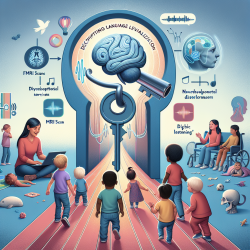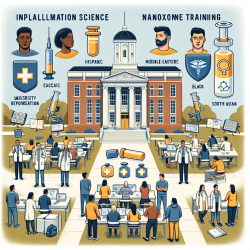Falls among older adults are a significant public health concern, often leading to severe injuries or even death. The recent study, "Development of the Home-Based Fall Prevention Knowledge (HFPK) questionnaire to assess home-based fall prevention knowledge levels among older adults in China," provides valuable insights for practitioners aiming to enhance their skills in fall prevention education.
Key Findings from the Study
The HFPK questionnaire was developed to measure fall prevention knowledge among older adults living in the community. The study involved 374 participants and utilized the Delphi method for item selection, ensuring the questionnaire's reliability and validity.
Important Outcomes:
- The questionnaire showed high content validity (I-CVI ranged from 0.867 to 1) and reliability (Cronbach’s α coefficient was 0.933).
- Fall prevention knowledge was significantly associated with higher education, being female, higher monthly income, being a public official before retirement, and having fewer children.
- Older adults had better knowledge of physiology, disease, lifestyle, and home environment factors but lacked awareness of the impact of drug use and mental health on fall risk.
Implementing Research Outcomes in Practice
Practitioners can leverage these findings to improve fall prevention education programs. Here are some actionable steps:
- Targeted Education: Focus on educating older adults about the risks associated with drug use and mental health. This can be done through workshops, informational pamphlets, and one-on-one counseling sessions.
- Visual Aids: Use more visual aids such as pictures, animations, and videos, especially for those with lower education levels. Visual learning can significantly enhance understanding and retention of information.
- Customized Programs: Develop customized fall prevention programs based on individual risk factors such as education level, gender, and previous occupation. Personalized approaches are more effective in addressing specific needs and concerns.
Encouraging Further Research
While the HFPK questionnaire is a robust tool, there is always room for improvement and further research. Practitioners are encouraged to:
- Conduct Follow-Up Studies: Assess the long-term impact of fall prevention education programs on knowledge retention and fall incidence.
- Explore Additional Risk Factors: Investigate other potential risk factors such as specific chronic diseases or types of medication that were not covered in the initial study.
- Expand Research Scope: Conduct similar studies in different geographic regions and cultural contexts to enhance the generalizability of the findings.
To read the original research paper, please follow this link: Development of the Home-Based Fall Prevention Knowledge (HFPK) questionnaire to assess home-based fall prevention knowledge levels among older adults in China.
By integrating these research findings into practice, we can significantly improve fall prevention education and ultimately enhance the safety and well-being of older adults in our communities.










